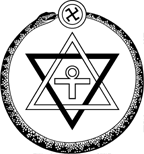Our website is made possible by displaying online advertisements to our visitors.
Please consider supporting us by disabling your ad blocker.
Annie Besant
Annie Besant | |
|---|---|
 Annie Besant as a young woman | |
| Born | Annie Wood 1 October 1847 |
| Died | 20 September 1933 (aged 85) |
| Known for | Theosophist, women's rights activist, writer and orator |
| Political party | Indian National Congress Social Democratic Federation |
| Movement | Indian independence movement |
| Spouse |
Frank Besant
(m. 1867; div. 1873) |
| Children | Arthur, Mabel, Jiddu Krishnamurti (adopted) |
| Part of a series on |
| Theosophy |
|---|
 |
Annie Besant (née Wood; 1 October 1847 – 20 September 1933) was a British socialist, theosophist, freemason, women's rights and Home Rule activist, educationist and campaigner for Indian nationalism.[1][2] She was an ardent supporter of both Irish and Indian self-rule.[1] She became the first female president of the Indian National Congress in 1917.
For fifteen years, Besant was a public proponent in England of atheism and scientific materialism. Besant's goal was to provide employment, better living conditions, and proper education for the poor.[3] She became a prominent speaker for the National Secular Society (NSS), as well as a writer, and a close friend of Charles Bradlaugh. In 1877 they were prosecuted for publishing a book by birth control campaigner Charles Knowlton. Thereafter, she became involved with union actions, including the Bloody Sunday demonstration and the London matchgirls strike of 1888. She was a leading speaker for both the Fabian Society and the Marxist Social Democratic Federation (SDF). She was also elected to the London School Board for Tower Hamlets, topping the poll, even though few women were qualified to vote at that time.
In 1890 Besant met Helena Blavatsky, and over the next few years her interest in theosophy grew, whilst her interest in secular matters waned. She became a member of the Theosophical Society and a prominent lecturer on the subject. As part of her theosophy-related work, she travelled to India. In 1898 she helped establish the Central Hindu School, and in 1922 she helped establish the Hyderabad (Sind) National Collegiate Board in Bombay (today's Mumbai), India. The Theosophical Society Auditorium in Hyderabad, Sindh (Sindh) is called Besant Hall in her honor. In 1902, she established the first overseas Lodge of the International Order of Co-Freemasonry, Le Droit Humain. Over the next few years, she established lodges in many parts of the British Empire. In 1907 she became president of the Theosophical Society, whose international headquarters were, by then, located in Adyar, Madras, (Chennai).
Besant also became involved in politics in India, joining the Indian National Congress.[1] When World War I broke out in 1914, she helped launch the Home Rule League to campaign for democracy in India, and dominion status within the British Empire. This led to her election as president of the Indian National Congress, in late 1917. In the late 1920s, Besant travelled to the United States with her protégé and adopted son Jiddu Krishnamurti, who she claimed was the new Messiah and incarnation of Buddha. Krishnamurti rejected these claims in 1929. After the war, she continued to campaign for Indian independence and for the causes of theosophy, until her death in 1933.
- ^ a b c "BBC - History - Annie Besant". www.bbc.co.uk. Archived from the original on 14 November 2019. Retrieved 16 January 2023.
- ^ "Annie Besant, Making Britain". www.open.ac.uk. Archived from the original on 3 December 2022. Retrieved 16 January 2023.
- ^ "Besant, Annie: Theosophy World". theosophy.world. Retrieved 11 October 2021.
Previous Page Next Page


